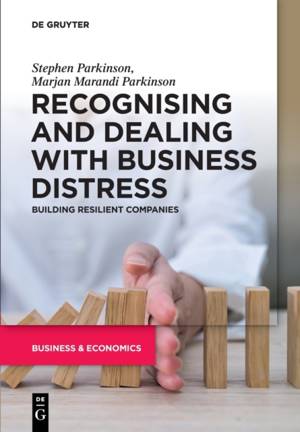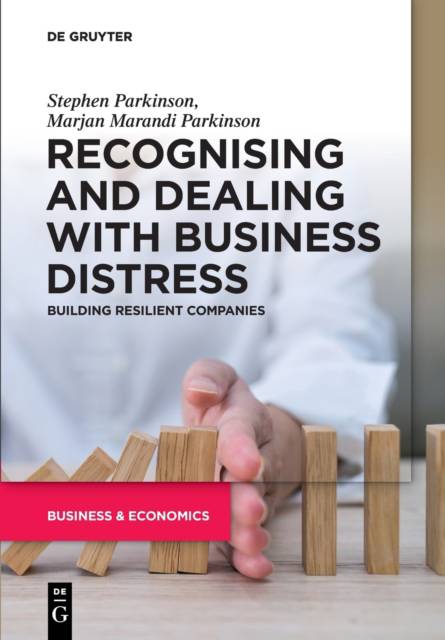
- Afhalen na 1 uur in een winkel met voorraad
- Gratis thuislevering in België vanaf € 30
- Ruim aanbod met 7 miljoen producten
- Afhalen na 1 uur in een winkel met voorraad
- Gratis thuislevering in België vanaf € 30
- Ruim aanbod met 7 miljoen producten
Recognising and Dealing with Business Distress
Building Resilient Companies
Stephen Parkinson, Marjan Marandi ParkinsonOmschrijving
Businesses fail - some spectacularly and suddenly, others more gradually over time. In some companies business decline can be turned around or at least delayed. In many others there is no option other than business closure. Over the past twenty years the rate of business failure has accelerated. Insolvency rates are high not just for small businesses but also for large well known public companies. Identifying possible causes of business distress is now recognised as an important agenda item. Creating the capacity to bounce back from such distress - business resilience - has become a priority.
The authors blend their own practical experience, academic research and a systematic analysis of recent high profile cases including Flybe Group Plc, Arcadia Group Ltd, Carillion Plc, NMC Health Plc and Thomas Cook Group Plc in a review of potential causes of business distress and key resilience drivers. This is presented in detail in separate chapters covering business purpose, board effectiveness, the quality of strategic planning, financial stewardship, risk management, business turnaround strategies and director duties in times of business distress. The book sets out a practical benchmarking framework in the form of a toolkit with a series of detailed evidences - performance indicators - that companies can use to assess potential business distress and build a resilient company.
Specificaties
Betrokkenen
- Auteur(s):
- Uitgeverij:
Inhoud
- Aantal bladzijden:
- 215
- Taal:
- Engels
Eigenschappen
- Productcode (EAN):
- 9783110689457
- Verschijningsdatum:
- 7/11/2022
- Uitvoering:
- Paperback
- Formaat:
- Trade paperback (VS)
- Afmetingen:
- 170 mm x 244 mm
- Gewicht:
- 358 g

Alleen bij Standaard Boekhandel
Beoordelingen
We publiceren alleen reviews die voldoen aan de voorwaarden voor reviews. Bekijk onze voorwaarden voor reviews.











